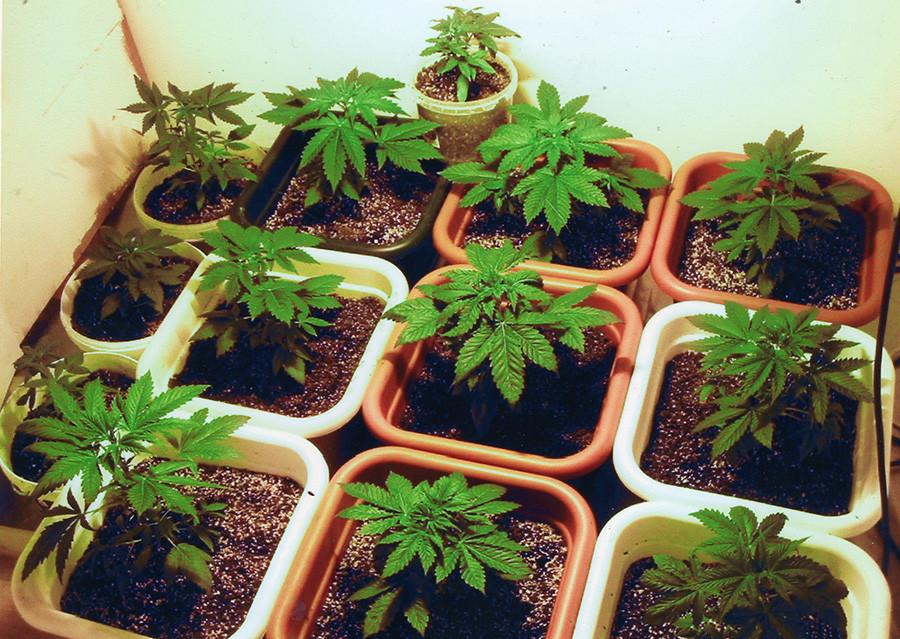The Time Has Come
Legalizing marijuana
November 16, 2015
The advocacy for and against the legalization of Marijuana has been a controversial topic in the U.S. for centuries. The Controlled Substances Act of 1970 classified marijuana as a Schedule I drug. The government classifies Schedule I drugs as such when research shows that the Schedule I drug has no medicinal purpose and has a high potential for abuse. Once classified as a Schedule I drug, the law considers marijuana to be one of the most dangerous drugs, and therefore carries some of the highest penalties of the law. Up to five years in prison was possible to first time offenders using, possessing, or selling marijuana. For multiple offenders, de facto life sentences are possible if multiple charges are given in the same proceeding. The extreme sentences for these minor drug offenses captured the attention of a variety of governments, whether they be local, state, or even federal. Since the peak of these extreme sentences, the fight for the decriminalization of marijuana has been met by a multitude of pro-legalization organizations, local governments, state governments, and many federal politicians. In recent years, the fight for the legalization of marijuana saw more headway than it has seen in the United States in the history of legalization advocacy, and the possibility of marijuana becoming legalized throughout the United States is rapidly turning from a possibility to a probability.
Over the years, the penalties for the sale, possession, and/or usage of marijuana have decreased according to each state. The most common penalties being a misdemeanor charge and a fine. Advocates against marijuana argue that these penalties have become to light, while others argue that the abolishment of penalties for possessing, selling, and/or using marijuana is necessary.
One of the most famous and common points of reference to be brought up in any situation or discussion involving the legalization of marijuana is in tandem to the usage of medical marijuana. As of 1996, twenty-three states, including Michigan, have legalized the usage of marijuana for medicinal purposes. However, the recreational usage of marijuana is illegal in forty-seven out of the fifty states, with the three exceptions being Colorado, Washington, and Alaska.
The push for the legalization of marijuana is continuing to march onward, as now in 2015, the legalization of marijuana is being put to yet another vote in multitude of states. Beyond that, with the 2016 election in full swing, the topic of the legalization of marijuana is a topic commonly debated amongst the candidates, with their plans for regulation common questions asked at debates.
Vermont Senator Bernie Sanders has taken one of the more radical positions involving the legalization of marijuana stating, “The time is long overdue for us to take marijuana off the federal government’s list of outlawed drugs.” The very foundation of the legalization of marijuana hinges upon the release of federal enforcement to state enforcement. “In my view, states should have the right to regulate marijuana in the same way state and local laws now govern sales of alcohol and tobacco,” Sanders proclaims.
Other 2016 presidential candidates have brought up their own plans for the legalization of, or restrictions on marijuana in their campaigns. One such candidate is Donald Trump. At a recent rally, Trump surprised the crowd and media with a fairly moderate statement regarding the legalization of marijuana “The marijuana thing is such a big deal. I think medical should happen; don’t we agree?” Trump questioned the rally. “And then I really believe we should leave it up to the states.”
With multiple 2016 presidential candidates bringing forth their plans for marijuana, and the overall support for handing control of regulation over to the states from both Republican and Democratic faces, the probability of marijuana being legalized throughout the U.S. is growing.
If the federal governments hand the states control, regulation would be essentially the same as the regulation of alcohol and tobacco. Proposed states plans for recreational legalization include having the legal age to legally purchase and use marijuana be the same as the legal age to consume alcohol, 21. If a police officer finds a person under 21 to be in possession, a Minor in Possession misdemeanor (MIP) will be given just as it would be in the case of alcohol.
In the case of Portage, a charter was passed recently to decriminalize small amounts of marijuana. In such a rare, historic, and local case, it is crucial to understand the opinions of those who voted in regards to this amendment. One opinion given by a Portage Northern voter that wishes to remain anonymous was that “I don’t know how I feel about it quite yet,” when asked whether or not this charter is too soon, “I want to learn more about the state law compared to the city law.” Another opinion provided by another Portage Northern voter that again wishes to remain anonymous was that “I think it’s time. I think there are more problematic issues in our society than the issue of marijuana. Therefore, I think that it’s good that the decriminalization of marijuana passed and that society is changing in that way. I support it.”
The proposed regulations are in place, as are the plans of the federal government. The all-around mindset of this country is growing more and more moderate towards marijuana. And whether or not marijuana becomes legal this year, next year, or any year after that, it seems to be becoming an undeniable fact; legalization is coming.









